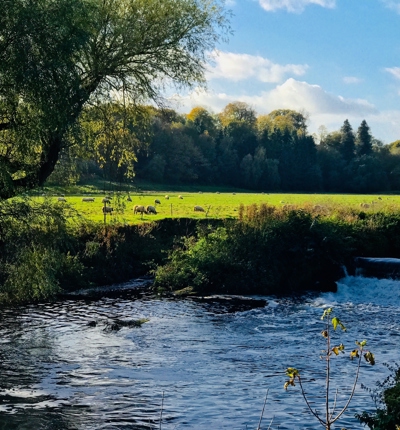
Wildlife campaigners launch legal case to challenge the humaneness of the badger cull
Wildlife campaign group Wild Justice has launched a legal case challenging Natural England's failure to ensure that badgers are being killed humanely as part of the annual cull to help prevent the spread of bovine TB.
Posted on 09 July 2020
Natural England published 10 licences for supplementary badger control on 15 May 2020. Further licences are expected to follow in Autumn 2020. Condition 21 of the licences states that all reasonable steps must be taken to ensure that badgers shot under the licence are dispatched “swiftly and humanely”.
Wild Justice, led by Chris Packham CBE, Dr Mark Avery and Dr Ruth Tingay, claims that in order to work out whether steps being taken are reasonable, Natural England must have some idea what is meant by “humanely” – but it would appear to have no basis for measuring what that means.
The group has applied for a Judicial Review of Natural England’s failure to clarify how it sets a benchmark for humaneness and argues that a lack of clarity means that an unacceptably high proportion of badgers could be left to an inhumane death.
Wild Justice is represented by Leigh Day, which sent Natural England a Pre-Action Protocol letter calling on the Government’s advisers to explain what measure for humaneness it was using after it had chosen not to apply the approach to humaneness agreed in 2014 by an Independent Expert Panel (IEP) established by Defra to report on pilot culls in Somerset and Gloucestershire.
The Panel considered that for the controlled shooting of badgers in the field, the percentage of animals surviving for more than five minutes after being shot, and the percentage being wounded but not retrieved (the “non-retrieval rate”), should not together exceed five per cent. i.e. at least 95 per cent of badgers that are shot at should die within five minutes.
The Government accepted that steps should be taken to improve shooting accuracy in its response to the IEP report but, despite efforts to improve the overall quality of marksmanship, Natural England’s annual reports demonstrate that the non-retrieval rate alone has consistently remained above 10 per cent since 2014, i.e. double the level recommended by the IEP.
The Protection of Badgers Act 1992 requires that Natural England be satisfied that licence applicants “are able to deliver the cull as safely and humanely as possible” and only permits two culling methods: cage trapping followed by shooting and/or controlled shooting of free-ranging badgers.
In the Judicial Review application Wild Justice argues that Natural England is acting unlawfully because it has imposed a condition which is entirely vague and unenforceable. It therefore provides none of the necessary certainties to ensure that reasonable steps are being taken to ensure the culling of badgers is humane. Wild Justice will ask the court to quash the licences and declare them unlawful.
In a statement, Mark Avery, Dr Ruth Tingay and Chris Packham said:
'We're very grateful to over 1,100 individual donors who have funded our legal challenge. Badgers are wonderful creatures and they need all the friends they can get these days. We believe Gandhi was right to say that you can judge the greatness of a nation by the way it treats its animals, and by that measure this government, DEFRA and Natural England are doing a very poor job.”
Wild Justice is represented by Carol Day and Partner Tessa Gregory.
Solicitor Carol Day said:
“The Government set up the Independent Expert Panel (IEP) to look at issues arising from the pilot badger culls, including humaneness. If Natural England has chosen not to use the IEP threshold, it must have some other basis for determining what constitutes “swiftly and humanely”.
“Since Natural England has not clarified what measure it is using to ensure that contractors are dispatching badgers swiftly and humanely, our client believes it has no alternative but to apply for Judicial Review to ensure the licence conditions are complied with.”

